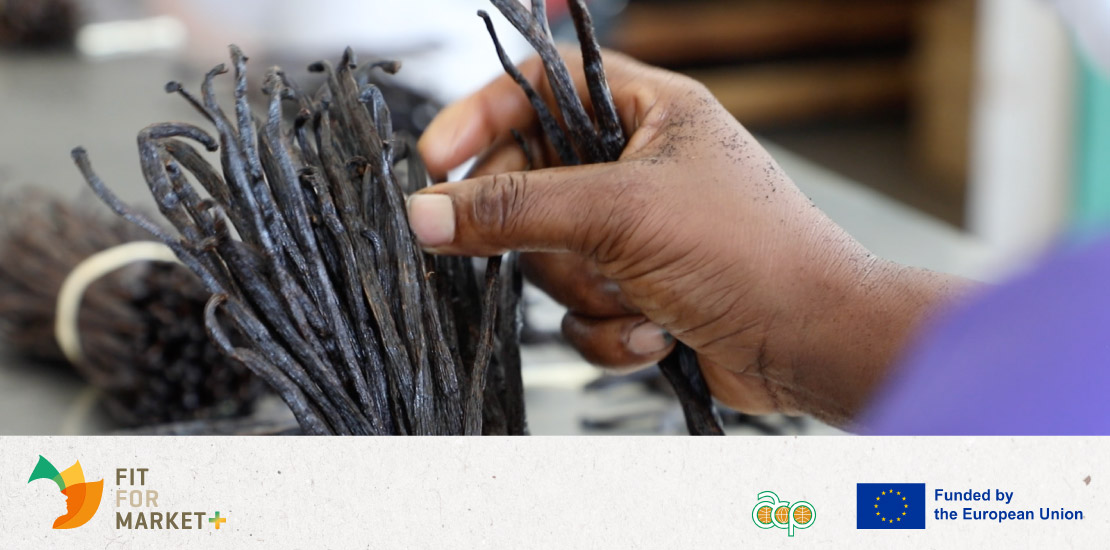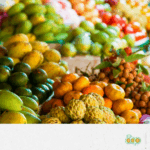- 10/06/2024
- Posted by: Sandra Borma
- Category: News

COLEAD research and advocacy supporting the vanilla sector in the face of changing EU regulations – 150,000 producer families potentially affected
Commission Regulation (EU) 2023/377 was published in February 2023, reducing the nicotine maximum residue levels (MRLs) for seed spices and fruit spices to the limit of determination (LOD). This change was not because of any identified risk to consumer health but was based on data submitted to the Commission indicating the nicotine levels occurring in these products under current practices. The LOD was first set at 0.02 mg/kg, but subsequently revised to 0.05mg/kg, based on new information from the European Union Reference Laboratories (Commission Regulation (EU) 2023/1536).
Unfortunately, the data submitted to the Commission was subsequently found to be unrepresentative, and the Madagascan vanilla sector reached out to COLEAD for support when they became aware of the change. Preliminary data collected by vanilla exporters/importers indicated that 81% of export samples analysed would exceed the proposed EU MRL of 0.02 mg/kg and 63% the proposed the EU MRL of 0.05 mg/kg (to enter into force in September 2023). An MRL at the LOD was thus a major threat to the sector.
Madagascar is the main source of vanilla for the European Union, and Madagascar and the Comoros alone account for about 80% of vanilla exports worldwide. Losing access to the EU market for potentially 80% of exports would have a drastic impact on the industry as a whole, and on the local economy. Some 80,000 farms, more than 150,000 farming families, and more than 6,000 intermediaries depend on vanilla production in Madagascar. The value of the vanilla export sector in 2017 ($680.2 million) represented approximately 6.8% of the country’s GDP, exceeding 7% with exports of vanilla extract included (World Bank, 2021).
COLEAD rapidly implemented the following activities through the Fit For Market Plus programme:
- Development of roadmap to tackle the problem.
- Workshop in May 2023 in Madagascar, organized by the EU Delegation, presenting the EU regulatory processes and explaining how third parties can provide feedback and influence.
- Assistance to the sector for the collection, collation and submission of new representative data to the EU to support a review of the MRL.
- Facilitation of dialogue and coordination between key stakeholder groups (EU importers, European Spice Association, Exporters in Madagascar,) and with the European Commission.
- Field surveys in Madagascar to assess practices and identify potential contamination routes along the supply chain.
- Collection of vanilla samples at different steps of the supply chain to identify the factors/processes responsible for the nicotine contamination (analysis ongoing).
- Preliminary research conducted by CIRAD and IPS2 University in Paris identified a potential precursor of nicotine – nicotinate – in the pod. A concept note has since been prepared in collaboration with CIRAD and IPS2, for a genetic/metabolism study to assess whether nicotine production could be endogenous.
COLEAD was instrumental in facilitating dialogue between the key stakeholders including Groupement des Exportateurs de Vanille de Madagascar (GEVM), Sustainable Vanilla initiative (SVI), European Spice Association (ESA), Embassies in Brussels, and relevant EU bodies (DG SANTE, DG INTPA, DG TRADE).
Thanks to its research team, network, and unique position at the interface between private and public sectors (in Madagascar and the EU), COLEAD was able to foster effective coordination between stakeholders that enabled the collection, collation, analysis and submission of data from 600+ vanilla samples. This data was used by EFSA (combined with other datasets) to conduct a new risk assessment by the end of 2023 that resulted in the modification of the vanilla MRL back to the original value of 0.3 mg/kg by 27 February 2024 (Commission Regulation 2024/451).
The actions of COLEAD helped to avoid a potentially major disruption of the trade in vanilla between Europe, Madagascar and the Comoros. It is an example of COLEADs capacity to mobilize its expertise, and facilitate public-private coordination, through a programme such as FFM+, to launch a response when a trade-SPS emergency such as this arises.
This activity is supported by the Fit For Market Plus (FFM+) programme, implemented by COLEAD within the Framework of Development Cooperation between the Organisation of African, Caribbean and Pacific States (OACPS) and the European Union. This publication receives financial support from the European Union and the OACPS. The content of this publication is the sole responsibility of COLEAD and can in no way be taken to reflect the views of the European Union or the OACPS.





